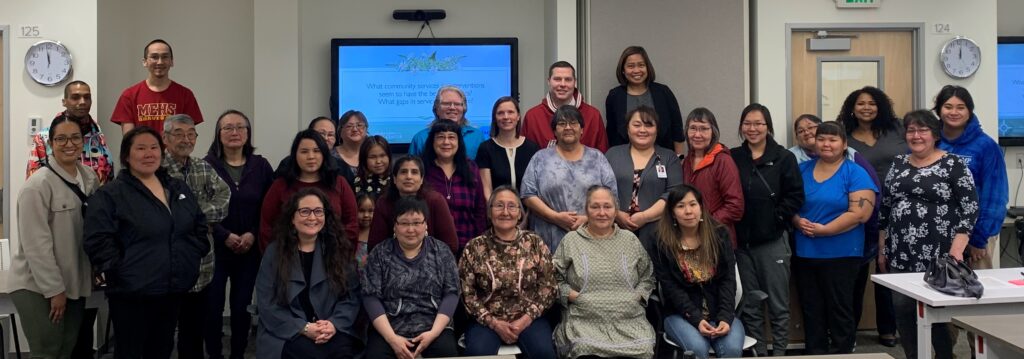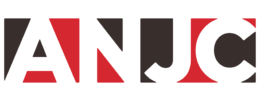In-Person Training Creates Statewide Connections

When a family needs a well child check in Aniak, it’s part of Mary Kvamme’s job to follow up. She accompanies a state trooper, and sometimes a social services associate comes along, too. As an Indian Child Welfare Act (ICWA) Tribal worker, Mary works alone; the local trooper and associate are all the support she has.
“In the village, we don’t have the lawyers there. We don’t have the social workers there,” she pointed out.
In April, Mary joined 23 other ICWA workers from around the state for the Alaska Native Justice Center’s (ANJC) first Basic ICWA Training for Tribes in Alaska. The training complements ANJC’s other support for ICWA workers in Alaska, including legal representation for Tribes involved in Child in Need of Aid hearings within the Anchorage and Southcentral regions.
“This training is something that’s been needed to fill a gap and make sure that those who do this hard work in their communities have the support they need,” said Casey Groat, ANJC Tribal Justice Facilitator.
Across Alaska, tribes strive to provide necessary ICWA services, but funding, recruitment, and retention of staff can be challenging. While some tribes have a dedicated ICWA coordinator, others have a staff person who only works part-time, or whose time is divided between ICWA work and other duties. Additionally, ICWA caseworkers intervening on behalf of children are often working from remote villages and can only appear in court proceedings by telephone.
While ANJC provides support for ICWA workers in the form of representation and technical assistance, the Introductory Training course provided an opportunity for ICWA staff to get questions answered and to form connections with other workers from all around the state.
The April training covered topics like tribal sovereignty and how tribes can address child safety concerns on their own and advocate for culturally relevant services.
Featured guests included Statewide ICWA Coordinator Tasha Yatchmeneff and Anchorage Regional ICWA Specialist Robin Charlie, who spoke about how the Office of Children’s Services (OCS) assesses child safety and collaborates with tribes.
“The better tribal workers understand the state system, the more they can hold the state accountable,” Casey pointed out. “Learning the lingo and who’s responsible for what at the state equips tribal ICWA staff to advocate for the child and the family in the best way.”
The training also included a panel featuring three Alaska court system judges who answered participants’ questions.
“To hear from the judges when they’re not on the bench in a black robe really helped to show their humanity,” Casey described. “I think that helps the ICWA workers feel more comfortable in a court setting and encourages them to participate because they got to hear firsthand how the judges value their role and their input.”
Sponsored by the Bureau of Indian Affairs Human Services, Alaska Region, ANJC’s Basic ICWA Training was offered again, virtually, in May. Two additional trainings are on this year’s calendar: another virtual training August 23 – 24, and an in-person session October 12 – 13.
“The beauty of having the training in person is the ICWA staff can create those connections with each other and learn from each other,” Casey shared.
She hopes to build intermediate and advanced trainings based on the basic training. “There’s just so much to cover, and the two days go by so fast. It would be great to strengthen statewide support of tribal ICWA workers by bringing those same workers back together for more advanced trainings.”
ANJC will also host a Tribal Child Welfare Conference, September 26 – 28, in Anchorage. Tribal ICWA workers and Tribal representatives from across the state can register to attend here.
Learn more about how ANJC supports Tribes across the state through their ICWA and Tribal Justice Support programs. To sign up for future ANJC ICWA trainings, contact icwa@anjc.net.
